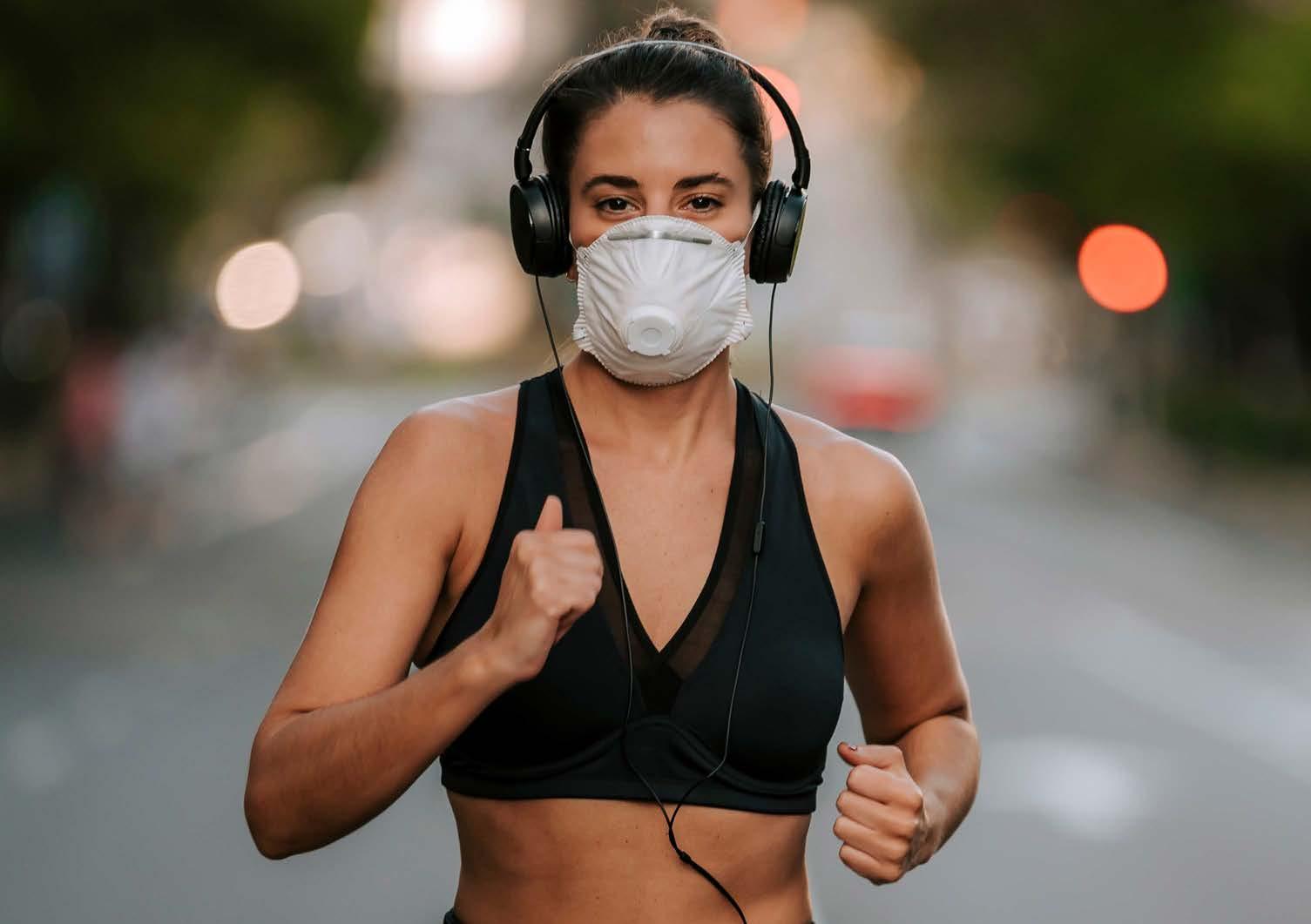
5 minute read
COVER STORY
LOSING THE COVID-15 Molly Prior
The “Quarantine 15” has been a popular meme on social media throughout much of this year due to the ongoing Covid-19 pandemic. But people might be wondering; how much of that is actually true? Are people really gaining weight at an alarming weight since spending more time indoors? Since March, many of us have been forced to spend far more time inside our homes than usual. People are not only working from home, but gyms are still closed and sometimes it’s been hard to fit in time and motivation to exercise with this “new normal.” Though it may be challenging, there are creative ways for people to exercise, stay healthy and embrace the new reality that is upon us.
Katherine McNamara, R.D., C.D.N., is a registered dietitian and nutritionist. She graduated from the University of Rhode Island in the health sciences department and did clinical training at the Lenox Hill Hospital in New York City’s Upper East Side. Now working as a dietician with patients for five years, McNamara has seen lots of changes in the way people’s physical and mental health are changing during the pandemic.
“There are two cases that I’ve seen a lot of,” MacNamara explained. “A lot of people have slowed down for sure. People think that it’s more of a challenge to work out if they can’t go to the gym or to their usual workout classes. But then there are also people who are working out a lot more than before because they might have more free time and they are being hard on themselves and their weight during the pandemic.” As for whether the quarantine 15 is actually real or not, McNamara said people may have seen some weight gain, but most people are fine where they are at.
For McNamara’s job, she says that she has seen an increasing number of patients using TeleHealth for their appointments when they can not come in person. She believes that programs like Telehealth and online exercise classes will be here to stay for the future, even when the pandemic is over, due to their efficiency. She also feels that people will be using them even more with the winter season and cold weather coming up.
Though it can be hard to feel motivated at the moment, MacNamara tells her patients that there are simple steps they can take towards leading a healthier lifestyle during this time.
“I tell people who have jobs where they are sitting at home and working all day to set phone reminders to get up and walk around every two hours,” she said. “It can be difficult when you have a job that requires you to sit at a desk. But I say to go out and try to go for a walk at least once a day as well.”

As for what people can eat during this time, MacNamara says that basic nutrients from before are still the most effective way to eat healthy.
MacNamara also explained how it’s important to be realistic about your weight in quarantine, and for people to not get themselves too down about it.
“I think one of the biggest things that people need to realize that everyone has a different body type and a different situation,” MacNamara said. “What works for one person might not work as well for someone else. Everyone has different fitness goals. My biggest piece of advice I’d say is to set short term goals for yourself and then turn those goals into bigger ones.”
Mental health issues have also come to light and the correlation with physical and mental health has been widely noted. With people being stuck inside and social media at their fingertips, many people have also seen the opposite end of the spectrum; feeling pressure to look a certain way and participate in diet culture during the pandemic. Young people in particular have felt an impact due to the use of social media. Some people feel that this can be highly problematic. “The recent trend of getting fit during quarantine has turned into a whole new diet culture in itself,” said Jana Clark, age 20. “Through social media, we have been made to believe that we have to use quarantine to transform their bodies or to lose a bunch of weight and that is highly problematic. There is nothing wrong with wanting to get fit and eating healthier, but there is also nothing wrong with accepting your body and focusing on other things.”
Patricia Wright, 21, a student teacher, also believes that new elements of stress are part of why people are so concerned about their bodies and health during the pandemic.
“The lack of social interaction, economic stress and other issues not only have mental impacts, but physical as well,” Wright explained. “We need to remember that mental and physical health go hand in hand. I think that it’s important to provide open conversations about weight issues during this time. Sometimes this is considered to be a taboo topic in society which needs to change.”
As the pandemic prolongs, maintaining physical health, along with wearing a mask and hand washing appears to be more important than ever. That concept is not going away anytime soon. But mental health has a correlation with physical health that cannot be denied and must be paid equal attention to. Continuing to talk about physical and mental health is essential not only during this time, but all the time.









